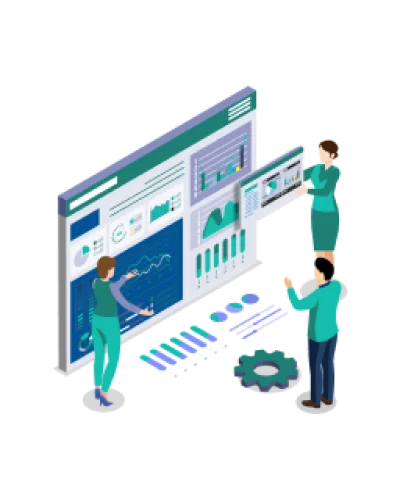Çağla KAAN
29.07.2022Project Management Methodology
What is Project Management Methodology?

“ There are numerous project methodologies for managing a project, whether it's someone with a formal project management certification or an experienced project manager. “
Project Management Methodology
There are numerous project methodologies for managing a project, whether it's someone with a formal project management certification or an experienced project manager. Each project needs to be implemented with its own organization, discipline, and usually its own rules, lists, principles, and abbreviations. You must find the right project management methodology to manage the business. Therefore, we wanted to talk about two basic project management methodologies to convey which methods, principles, and approaches should be used for each team and project.

What is Project Management Methodology?
Project management methodology includes a set of principles and practices that guide the organization of projects to ensure their optimum performance in accordance with the cost, time, and scope defined under quality assurance of products or outputs. Every project can be viewed as a framework that aids in evaluating and managing it on a project-by-project basis. Methodologies for project management are not rigid and unchangeable. The company's internal policies determine how project management will be used in the scope of the project. These policies should be judged based on the size and risk of the project.
Project management is essential for organizations and teams. However, to be truly effective, the project management methodology must be determined by:
- Justification of the project,
- Size of the project,
- Scope of the project,
- Risk of the project,
- Cost benefit analysis,
- Organizational structure and similar goals.
Project management includes multiple methodologies. On the other hand, it would not be wrong to say that other forms emerged through two basic views: waterfall and agile methodology.
Why Are Project Management Methodologies So Diverse?
Considering various goals, KPIs, and production methods of different teams and industries, we can't assume that there is a single way to manage a project that works for everyone. So, what works best for one type of team can be a nightmare for another.
Software teams started to develop methodologies to fix the problems they experienced. Before long, other teams and industries began adapting these new project management methods to suit their unique needs. Moreover, different project management methodologies were used and adapted for different industries.
As a direct consequence of this, it is essential to decide between the various techniques that have surfaced. How exactly can you determine which project management method will serve you and your team most effectively?
How Do You Choose the Right Project Management Methodology?
Many factors are influential in determining a project management methodology for your project, team, and organization. So, the project's content should be looked at, and the steps to be taken for big, complicated projects should be kept separate from the steps to be taken for small projects. Here are some important things to think about and answers to a few key questions:
- Stakeholder collaboration;questions that should be asked during the communication between the stakeholders and the preparations for the product:
- Do you know who your stakeholders are in your project?
- Is there a legal organization that will affect the project or its output?
- Who should be directly involved in the project as stakeholders?
- Which stakeholder will participate in which project phase?
- Which stakeholder will be impacted by the project's outcomes?
- Which stakeholders can influence the project's success or failure?
- Cost and budget;some questions to ask for defined cost management:
- What kind of budget are you working with?
- Is your budget large or midsize?
- While preparing cost estimates, have you identified the HRM, project timeline and risks?
- Have you included contingency backups in the cost in case of additional costs?
- Did you create the Cost Baseline?
- Have you included a management reserve for unexpected (known or unknown) risks in your budget planning?
- Project Team;some questions to be asked on behalf of the people who will take part in the project to be prepared are as follows:
- Have you decided how many people will be on your team and who you will need?
- Have you determined your project team members' roles and responsibilities?
- Have you determined the project team members' competencies?
- Have you identified any ways to improve team members' competence?
- Have you decided how Project Team members will be defined, assigned, and regulated, as well as when they will be released?
- Risk;some of the questions to be asked in order to calculate the risks you will take according to the project to be done are as follows:
- Is the project a high-impact task and requires careful management to produce significant results?
- (Or) Is the project with a bit more flexibility and a smaller scope?
- How will you mitigate the risks associated with unexpected situations?
- Have you determined how to assess the project's risk?
- Will the potential project threats affect a piece or the entirety of the project?
- Have you performed any risk reduction or prevention-related work?
- Can positive risks be increased (positive) and negative risks (negative) reduced in your project?
- Scope;some of the questions to be asked in order to understand the project scope to be prepared are as follows:
- Do you have an idea about the scope of your project?
- Does the project's scope encompass requirements that meet the needs and expectations of the stakeholders?
- Have you determined what is included or excluded from the project?
- Does the scope of the project need to be changed?
- After completion of your project, will the key stakeholders be satisfied with the results?
- Is it possible to exchange the finished product?
- Quality;some of the questions to be asked in order to understand the project scope to be prepared are as follows:
- Are you certain that you have generated the correct product in accordance with the project's requirements?
- Are you certain that you are producing the goods in the most efficient way?
- Is the final product of your project acceptable for use?
- How will scope verification and validation be implemented in the project?
- Timeline;questions to ask to calculate the time from product preparation to delivery are:
- How much time was taken to deliver the product?
- Do you need a quick response?
- (Or) Is it more important to have a beautifully finished result no matter how long it takes?
- Have you defined a time frame for your project and what work will be completed when?
- Have you decided how long your project will require, how long each task will take, or how long the work will take?
- Did you create the activities to be carried out within the scope of your project in a certain time period?
- Determination of requirements,
- Analyzing,
- Creation of designs,
- Performing the tests,
- Appearance of the product,
- Deployment and maintenance process.
- If the final requirements of the project are clearly defined and the scope will not change,
- If stakeholders know exactly what they want and will not make changes,
- If the project is consistent and predictable,
- If it is a regulated industry that requires extensive project follow-up or documentation.
- Customer satisfaction,
- Collaboration,
- Fast progress/delivery,
- Openness to data-driven change.
- Test when requirements are ready,
- Re-evaluation,
- Complete adaptation and
- Short working phases.
- If there are points that can be changed in your project,
- If you are not sure what the solution will look like at first,
- If you need to work fast,
- If your stakeholders or your customer want to be involved at every stage.







Two Basic Project Management Methodologies
There is a wide range of project management approaches to choose from. As we previously stated, new techniques have been devised to address the challenges and requirements of project management. However, it is built on two fundamental methodologies: Waterfall (Traditional) and Agile.
1)Waterfall Methodology
The waterfall method is an old-school way to manage projects. Inside it, tasks and stages are done one after the other in a straight line. In other words, each step of the project must be finished before the next one could even start.
The stages of waterfall project management usually follow this order:
It was given this name because it runs from top to bottom in a single direction, like a waterfall. The final product is considered an output once the project has been completed. In other words, it is not possible to return to a prior level once it has been finished. Moreover, if the procedure is carried out quickly, there may be negative outcomes. Since everything is initially planned, errors might occur when expectations do not match reality or when key details are missed. For these reasons, this project management methodology is preferable in the following circumstances:

2)Agile Methodology
Agile project management technique was developed as an alternative to the linear approach of traditional project management methodology. It has been shaped by the desire for a more testable technique that enables teams to change their projects as needed during the process, rather than waiting until the conclusion, and to properly manage expectations.
The basic principles of agile project management methodologies are:
In addition to these principles, agile project management methodology usually includes:
First, project managers and/or product owners tell the teams what they need to know. After that, priorities are set. Then, at each stage, the team decides what to focus on, and the process moves forward. If you try this method for managing projects, you'll be able to handle the process well:

IN SUMMARY, project management is an important process that must be carried out around certain rules. Ideas are created for the problems and needs experienced or to be experienced. As a result, the principles, constraints and rules and methodologies that make up this process have emerged. It is possible to simplify the process of project management by selecting the appropriate approach. There are other approaches derived from these foundations by adding and modifying certain points. You can find your own method by asking the necessary questions.


